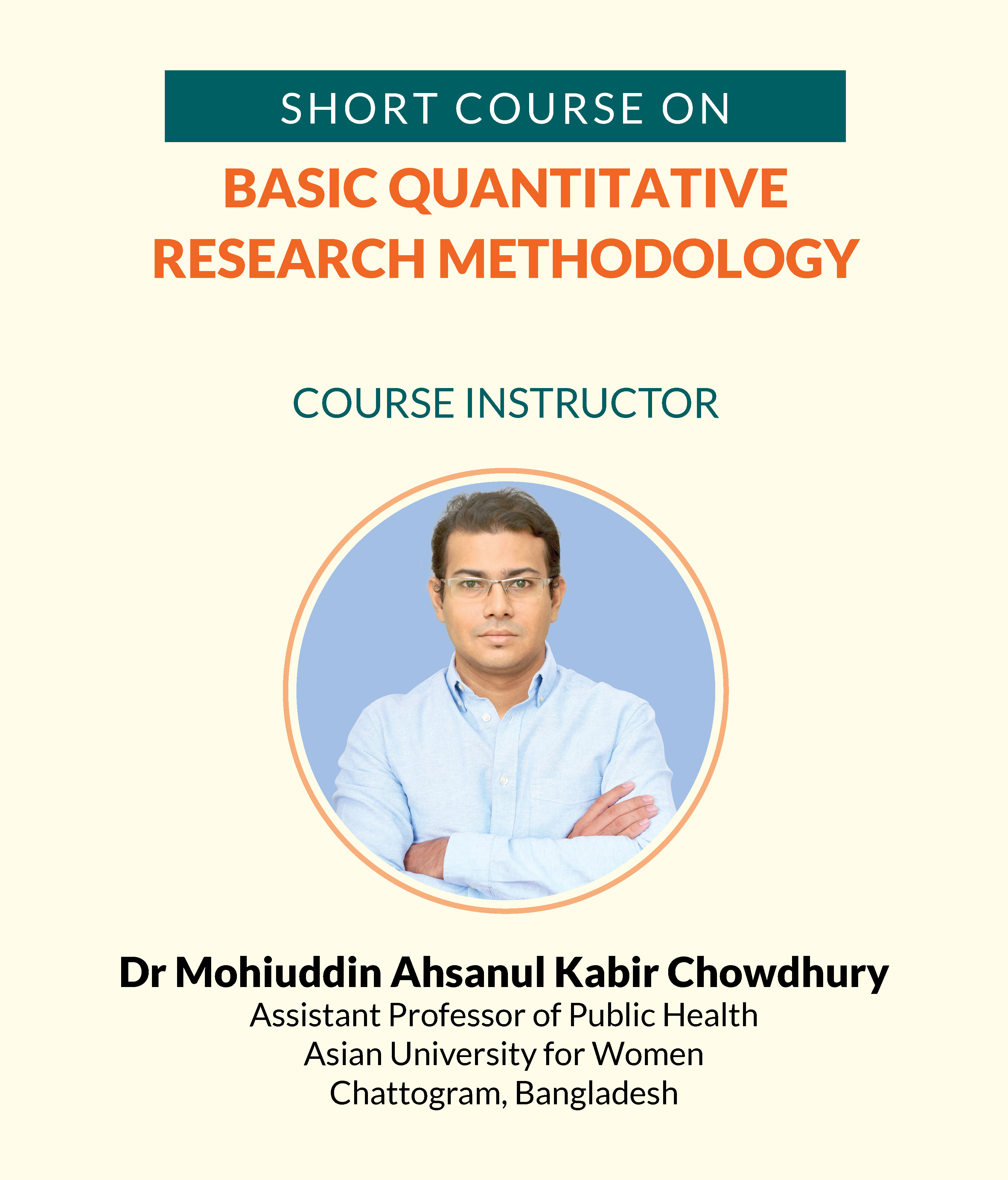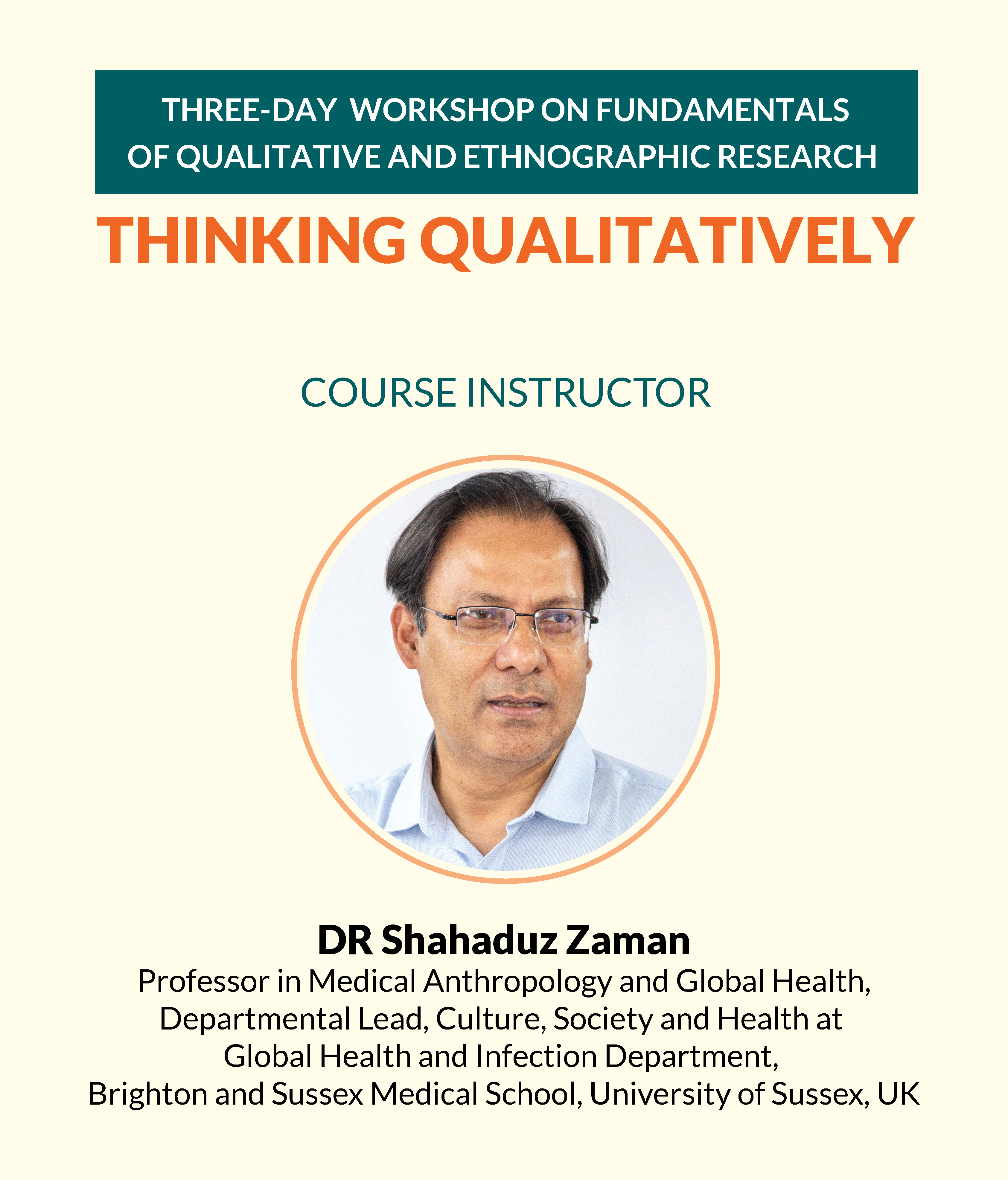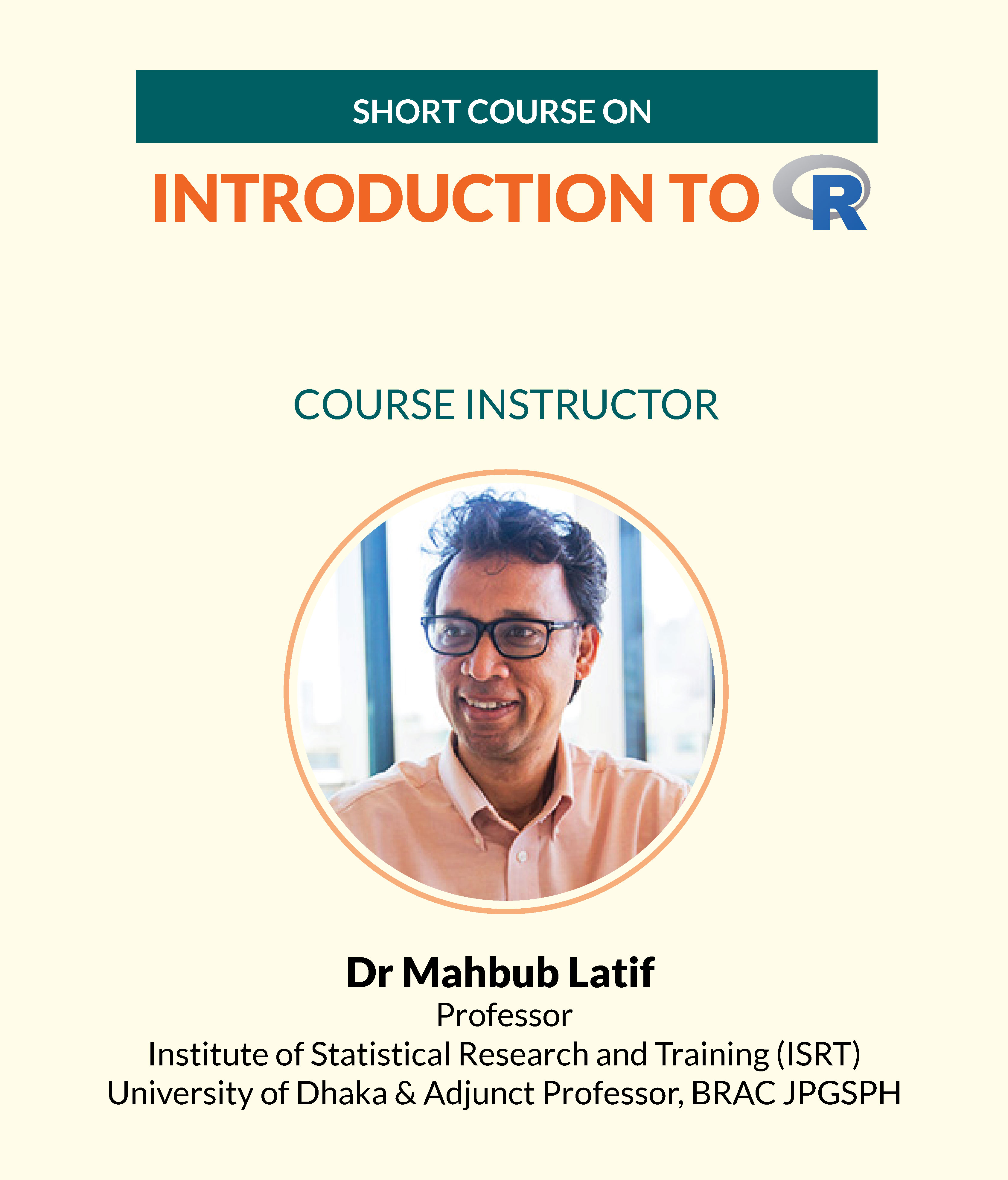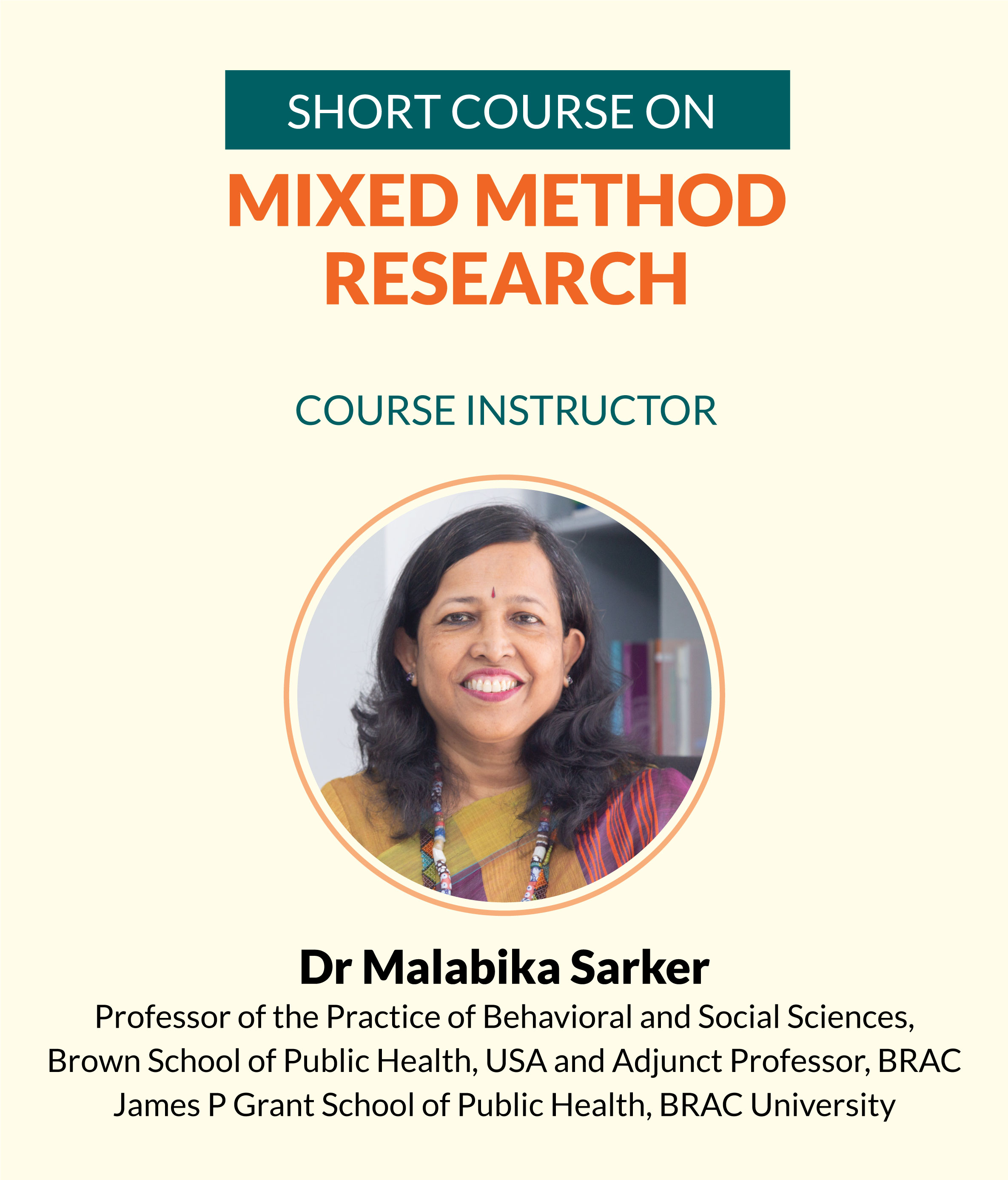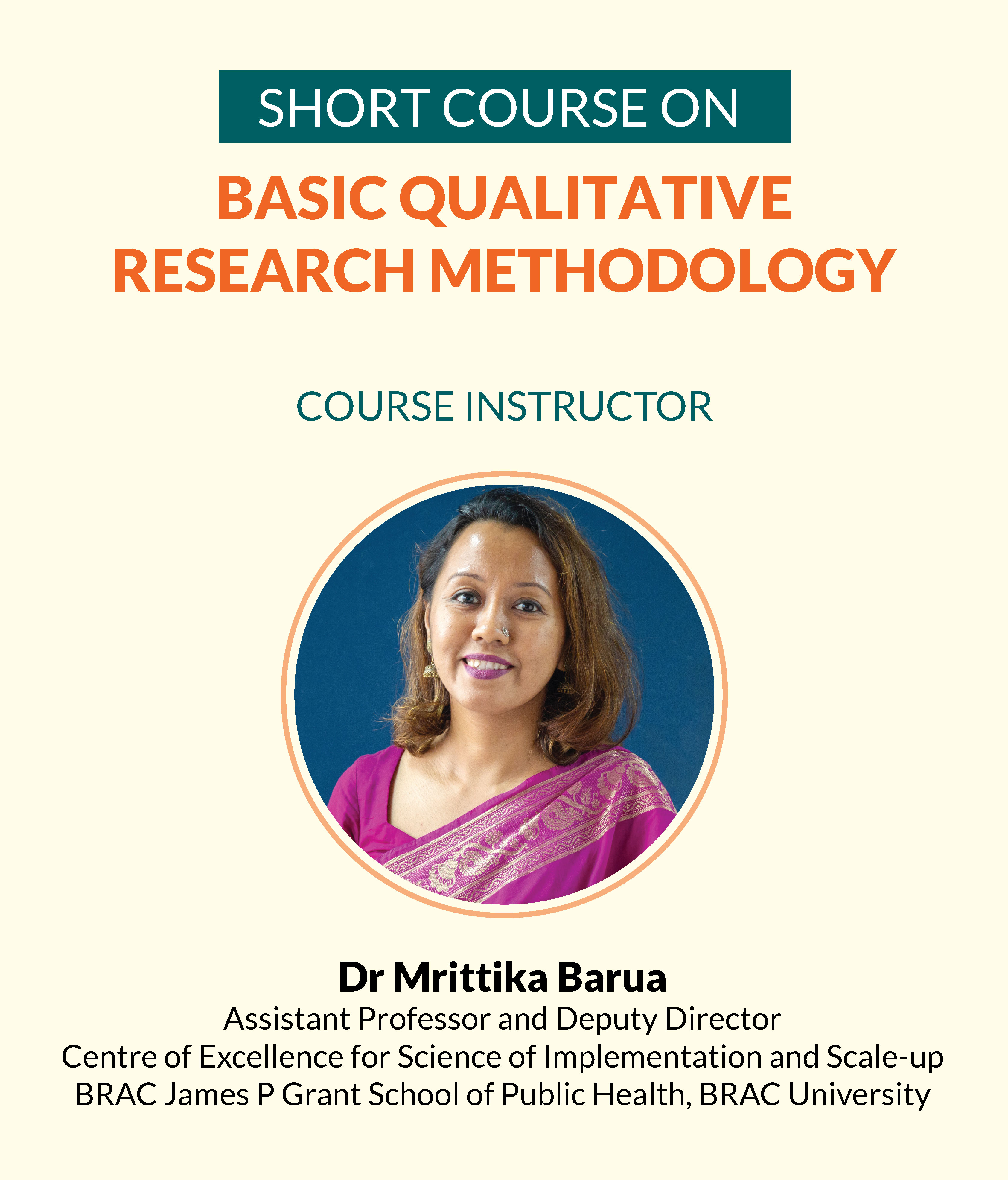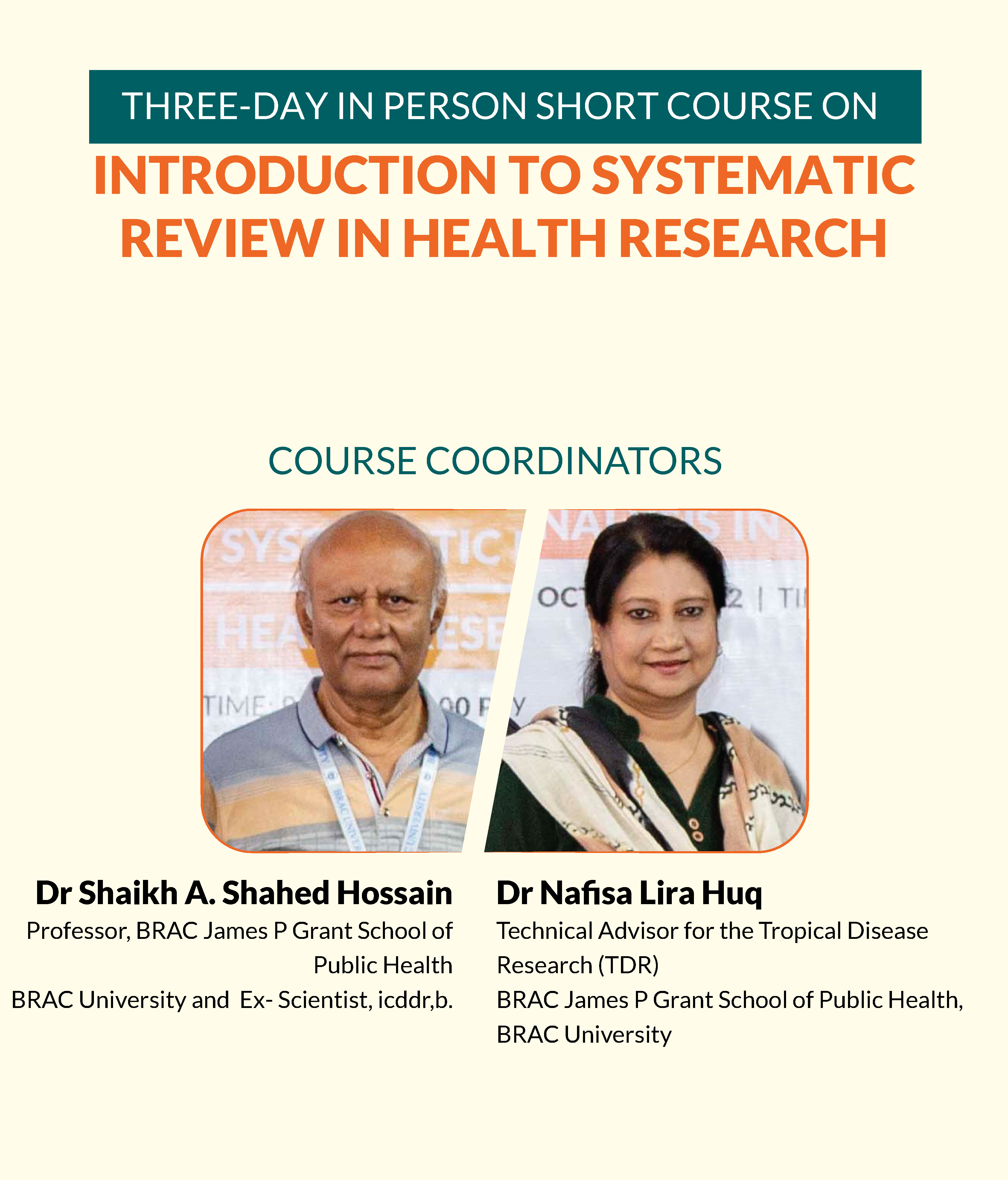Training | Enhancing Skills of Professionals
Established in 2007, the School’s international training hub Centre for Professional Skills Development in Public Health enables the continuation of education for Professionals, such as practitioners, policymakers, development partners, Government officials, public advocates, educators, researchers and frontline health workers; by crosscutting across the themes of the 5 Research Centres of Excellence and the 4 Policy and Research Hubs.

The Centre is
led by
Dr Ataur Rahman
Director, Centre for Professional Skills Development in Public Health
